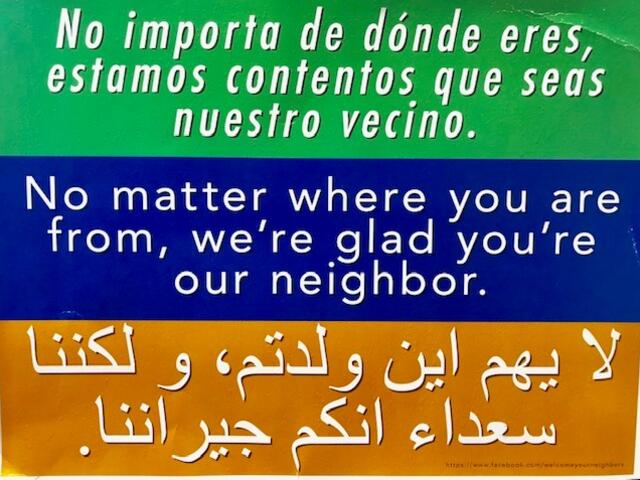
By Helen DeKorne
Annette voted in the midterm elections in November 2018. She asked her son to go to the polls with her, wanting his company as this day marked her first vote as a newly naturalized American citizen. Annette became a U.S citizen last year, twenty-eight years after coming to the country.
Annette came to the International Rescue Committee (IRC) in Baltimore in May 2016 for assistance filling out the Application for Naturalization. She was aware that applicants for naturalization must pass a reading, writing and civics exam to become a U.S. citizen. Annette has trouble with her memory due to a medical condition connected to her nerves, and she worried that she couldn’t memorize the responses to the civics questions on the naturalization exam. The IRC discussed the possibility of completing the Medical Certification for Disability Exceptions with Annette. This certification, if approved by U.S. Citizenship and Immigration Services (USCIS), would allow Annette to become a U.S. citizen without having to answer questions about U.S. history and civics during the naturalization interview. Annette’s doctor filled out the medical certification, explaining Annette’s condition and requesting that she be exempt from the exam.
Annette was born in 1962 on the island of Antigua in the Caribbean. She obtained her green card in 1989 at the age of twenty-seven. Annette worked as a homecare giver and raised four children in Baltimore. She spent the majority of her adult life in the U.S and considers Baltimore her home. Annette became eligible to apply for naturalization in 1994, five years after receiving her green card, but she waited another twenty two years before submitting her application for naturalization in 2016.
Annette kept in close touch with the IRC during the seven months following the submission of her application, while she waited her interview to be scheduled. She expressed “feeling a little fearful before the interview,” but the experience was ultimately easier than she imagined. A Department of Justice Accredited Representative from the International Rescue Committee accompanied Annette to her interview, and the interviewing officer approved the medical certification, allowing Annette to proceed with the interview without the civics examination. Annette successfully completed the interview and subsequently took the oath of allegiance and received her naturalization certificate. Twenty eight years after receiving her green card, Annette walked through the front door of her Baltimore home, naturalization certificate in hand.
The IRC helps over 60 clients submit their applications for naturalization along with the Medical Certification for Disability Exceptions each year. These applications are based on a range of medical conditions, including Post Traumatic Stress Disorder, dementia and depression. Some conditions are caused by genetic factors and others result from past trauma or illnesses. The IRC communicates with medical systems and doctors’ offices throughout Baltimore in order to ensure that a medical waiver is correctly completed by the appropriate medical provider. An IRC Department of Justice Accredited Representative then attends the naturalization interview with the client. The representative provides legal counsel for the client during the interview and communicates with the USCIS interviewing officer to clear up any confusion. The IRC works to overcome the stigma that is often attached to recognizing and discussing certain medical conditions in the community. Many green card holders don’t know that there is a possibility of a medical exception to the civics, reading and writing naturalization requirement, and may not recognize that their own medical condition qualifies them. Annette expresses hope that other qualified community members will consider taking the steps to naturalize, despite the barriers they might face.
Looking back on the process, Annette explains that there was no one specific event that pushed her to finally apply for naturalization in 2016. Rather, it was the gradual realization that she was turning fifty-five years old and that, in her words, “it was important to be sure and to be safe.”
“I realized that that I had been here so long, and I wanted to be a citizen,” explained Annette after her first trip to the polls. Annette didn’t mention politics or the recent changes to immigration policy, but the anti-immigrant voices spilling across newspapers, TV screens and Facebook newsfeeds are hard to ignore. Annette expresses the urgency of applying, “It is important to do it. To be part of America.”